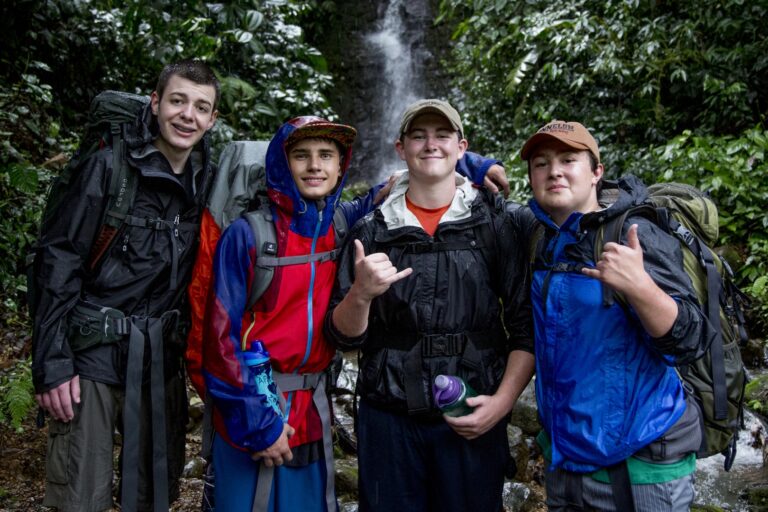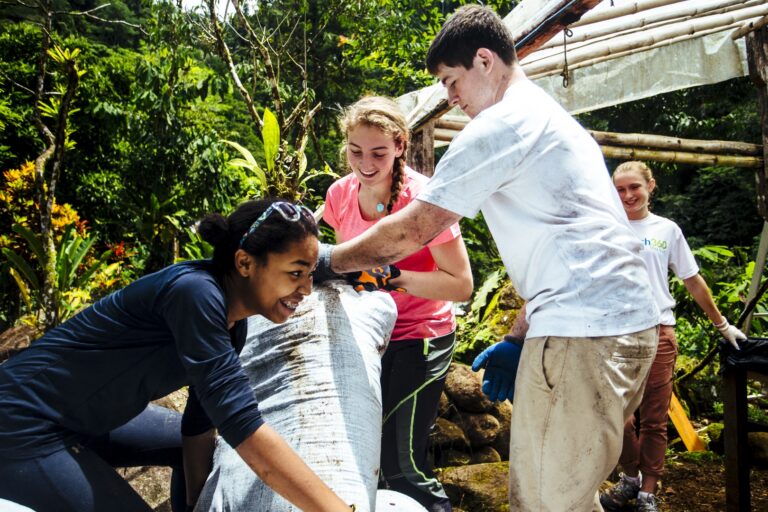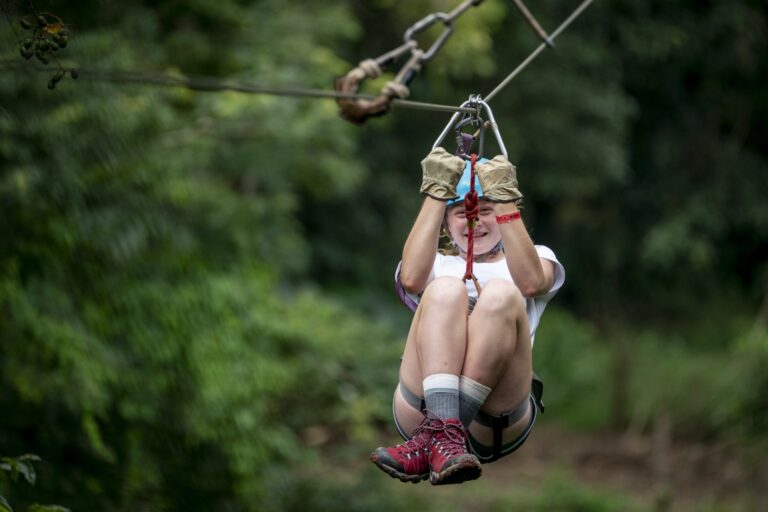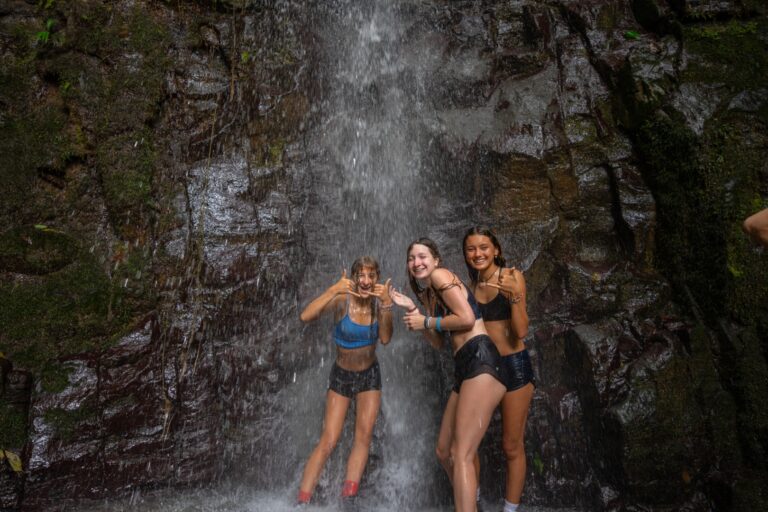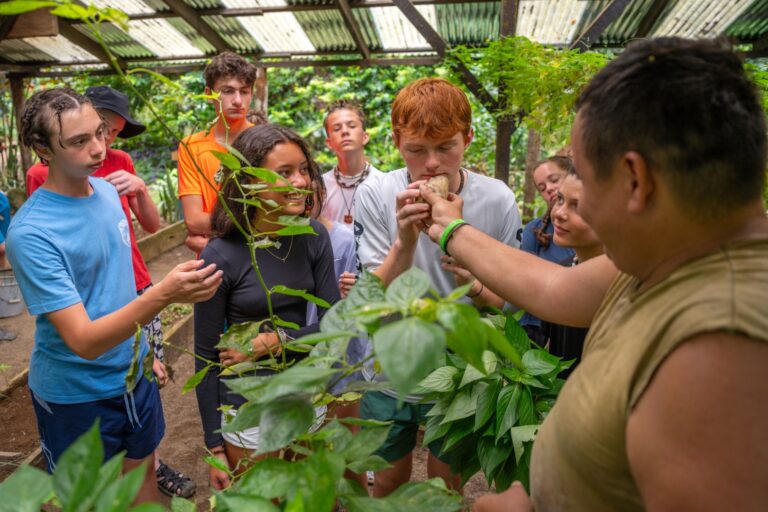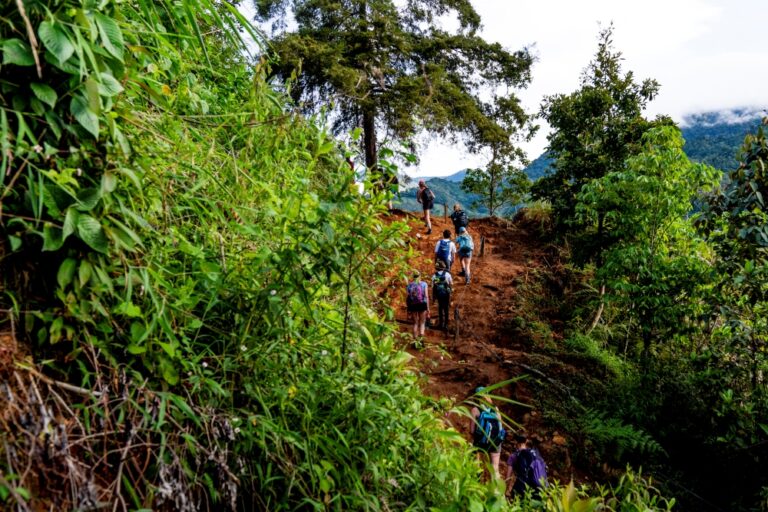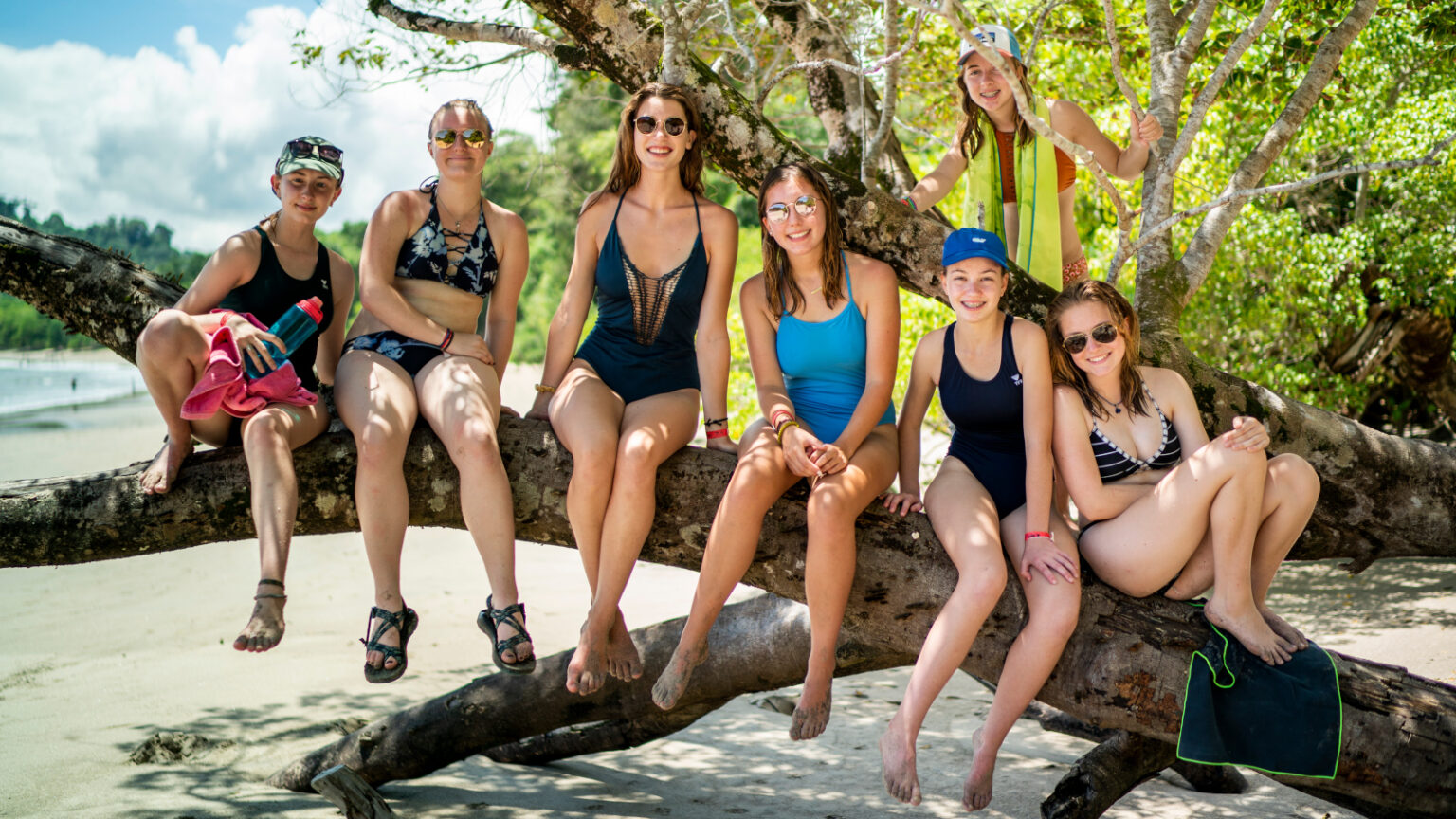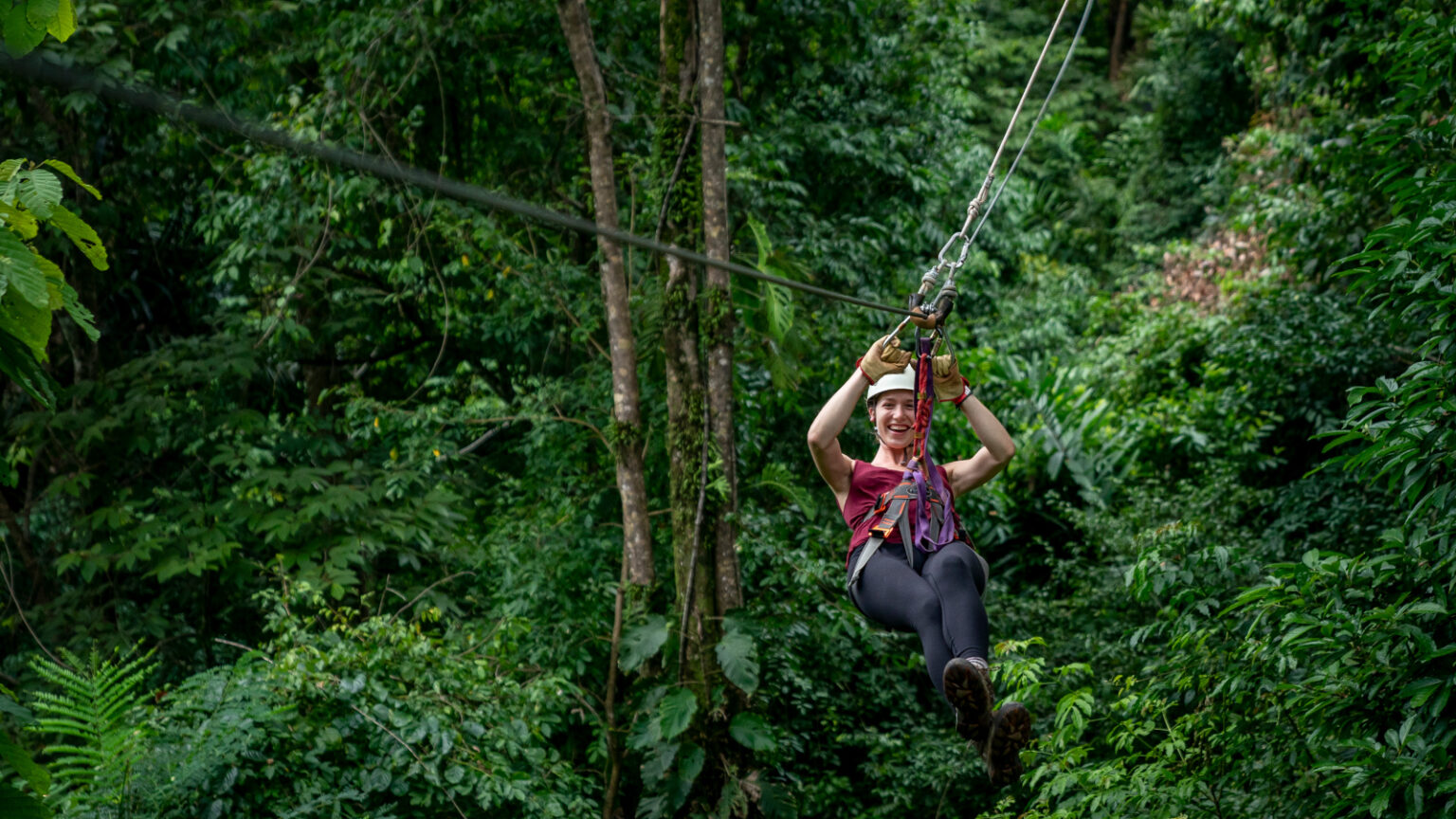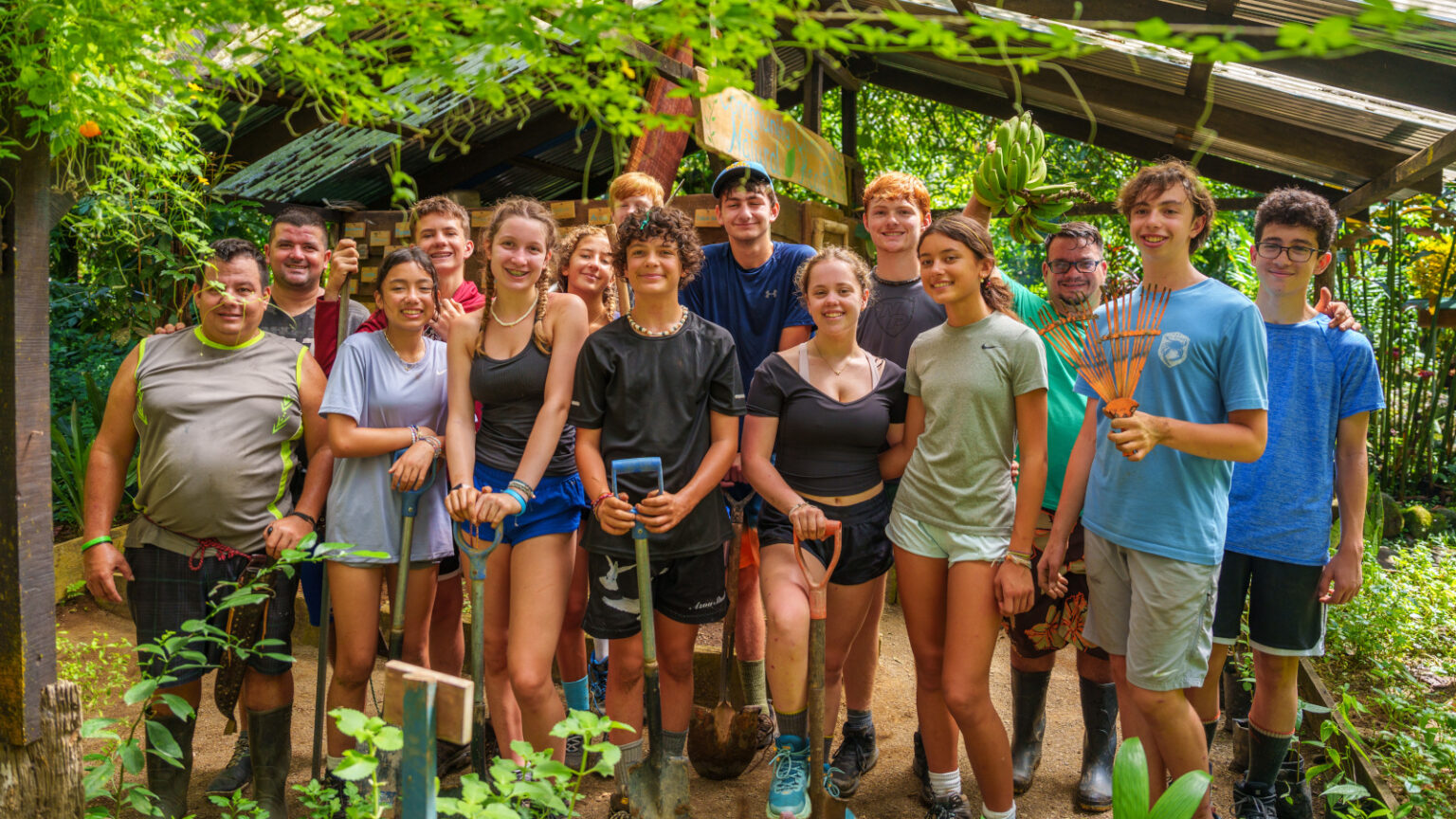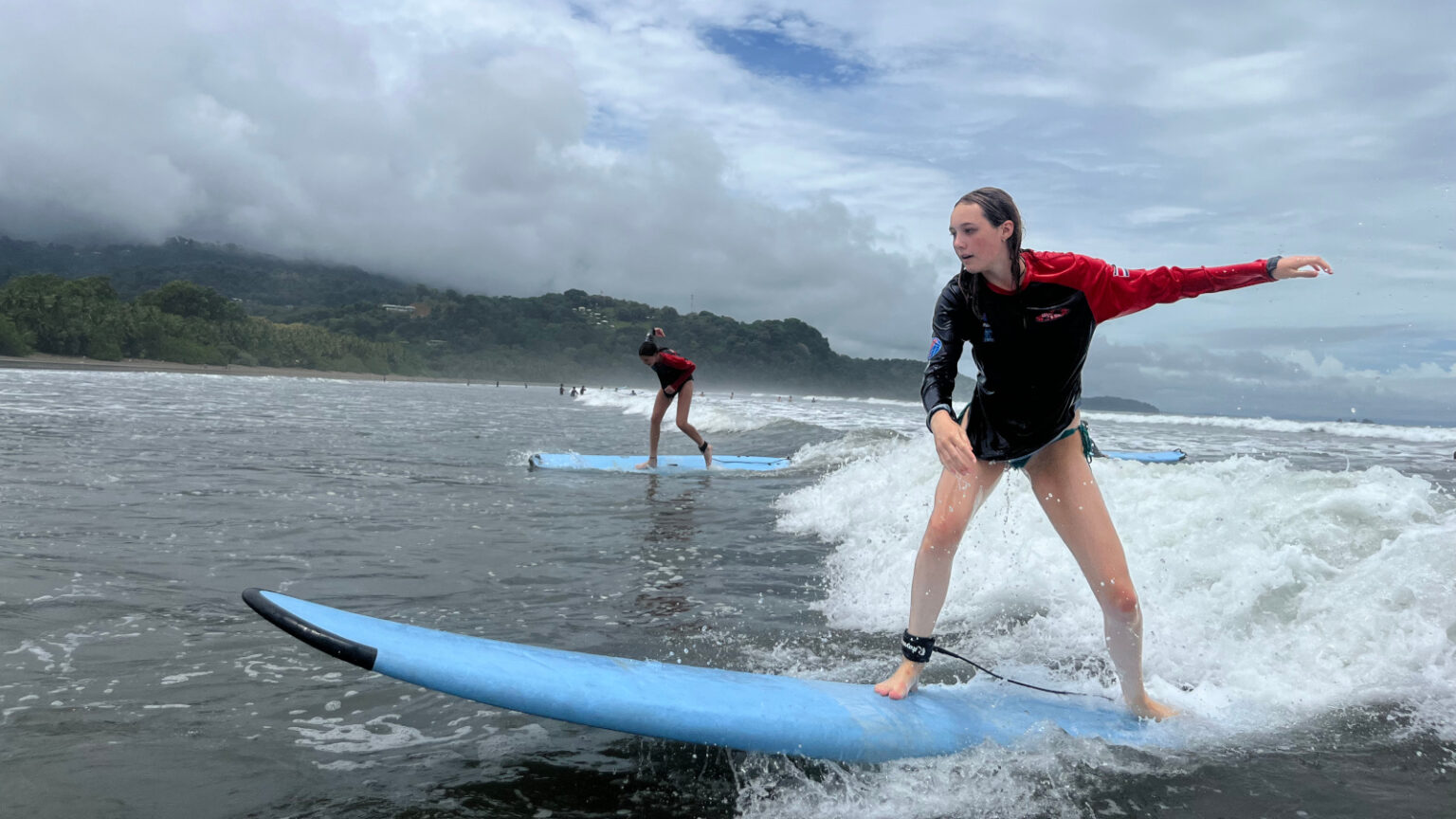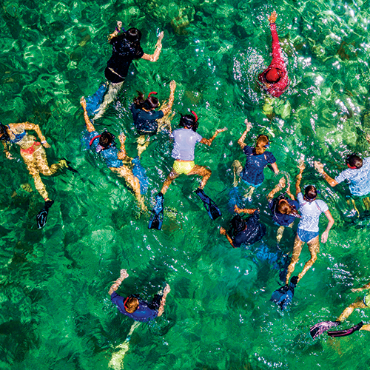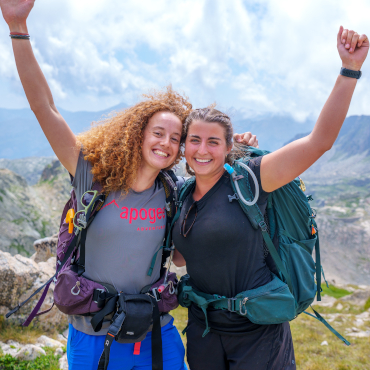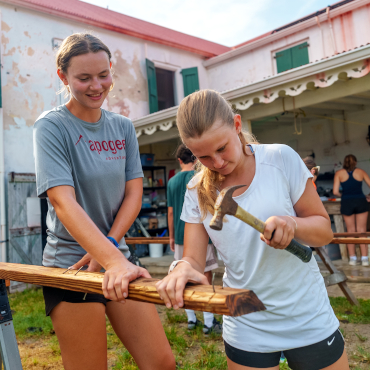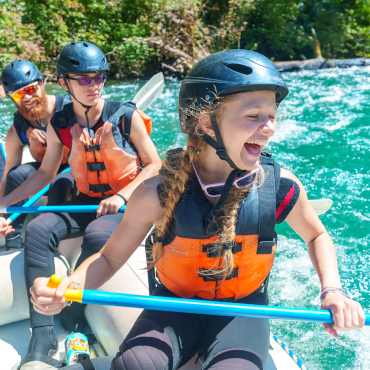Highlights
- Explore Chirripó, Costa Rica’s tallest mountain
- Zip-line through Costa Rica’s Cloud Forest
- Hike through wildlife-rich Manuel Antonio National Park
- Volunteer at an eco-lodge in the heart of the rainforest
- Surf & swim in tropical blue waters
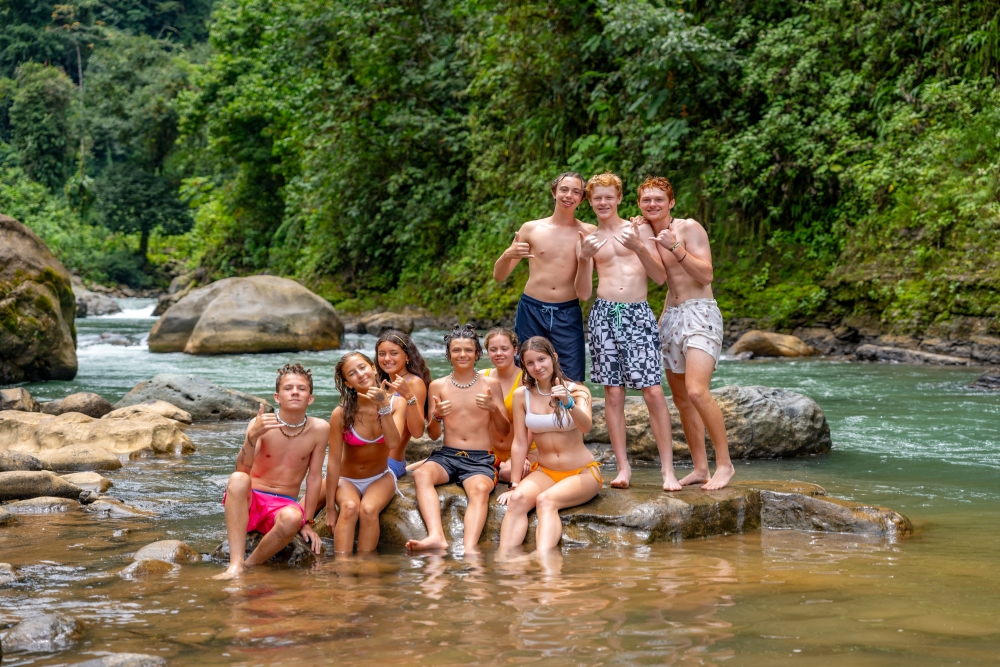
Trip Details
- Start: San José, Costa Rica
- End: San José, Costa Rica
- Age Range: 14 - 16
- Cost: $4,699
Dates
Jun 28 - Jul 9 (Limited)
Jul 13 - Jul 24 (Limited)
Jul 28 - Aug 8 (Available)
Trip Itinerary
Costa Rica may only be approximately the size of West Virginia, but it packs an ecologically diverse punch. Over the course of this twelve-day summer adventure camp, you’ll see beautiful beaches, lush rain forests, impressive mountain peaks, and abundant wildlife. You’ll hike in a wildlife-rich national park with local guides, spend time exploring and volunteering at a eco-lodge in the heart of the rain forest, zipline through the lush canopy of a Costa Rican cloudforest, explore the trails around Costa Rica’s tallest peak, and surf in the Pacific Ocean with professional guides. You’ll return home with a wealth of new friendships, endless stories, and memories to last a lifetime.
Manuel Antonio National Park: Wildlife Tour, Beaches, & Zip Lining
Our group will assemble at the San Jose airport and we will start our Costa Rica hiking trip by heading straight to the Pacific coast to explore Manuel Antonio National Park. We’ll take a guided tour of the Park with rangers, get to know the resident sloths, enjoy the antics of the three different species of monkeys, and swim in warm, clear, Pacific water. To cap off our time in this beautiful area, we’ll take a canopy tour on Costa Rica’s longest zip line, soaking in views of the Cloud Forest.
Chirripó National Park and the Rainforest Ecolodge: Hiking, Community Service & Cultural Exploration
Our next stop is the mountain village of San Gerardo de Rivas, nestled at the base of Cerro Chirripó, Costa Rica’s tallest mountain. During our three days here, we’ll explore the wide variety of trails with gorgeous mountain vistas, waterfalls, and wildlife in the beautiful protected areas around Chirripó. After exploring all that Chirripó National Park has to offer, we’ll backpack into the Costa Rican wilderness to a scenically located eco-lodge in the Savegre River valley. Here, we’ll work on a community service project with the owners of the eco-lodge, take a lesson in cooking (and eating!) traditional Costa Rican food, and set out on a guided night-hike to see some of the incredible bio-diversity that comes out at night in Costa Rica’s rainforest.
Beach Time, Surfing, and Final Dinner
Off with the hiking boots and on with the swimsuits! The next page of our adventure takes us to the Pacific beach town of Uvita, with their famous “whale’s tail” breakwater. What better way to celebrate our hiking accomplishments than by surfing and swimming? With our professional guides, we’ll “hang ten” as we spend a morning learning how to surf before taking the afternoon to explore the area’s beautiful beaches. A festive farewell dinner in the capital city of San Jose with our new friends will cap off our teen hiking trip in Costa Rica.
Reviews
Frequently Asked Questions
Please see our General FAQ page for many more frequently asked questions and answers!
How physically challenging is CRMC?
Given a Challenge Level of 4 (out of a maximum of 10), we consider Costa Rica Mountains & Coast to be an intermediate hiking trip that any moderately fit, motivated student can successfully complete with some preparation. Compared to similar hiking trips, we believe that CRMC is slightly more challenging than our Colorado’s Rocky Mountains trip (mostly due to trip length and international travel), but just a bit easier than our Alaska Mountains & Coast trip (due to the fact that CRMC students won’t be doing any camping or backcountry hiking). Please note that all of Apogee’s Challenge Levels are not scientific and are subjectively calculated by the Apogee staff.
Does my child need to speak Spanish sign up for CRMC?
No – your child’s leaders will be fluent in Spanish and will be able to communicate with the locals on behalf of the group, translating when necessary. That being said, if your son or daughter does speak Spanish and wishes to practice, there are ample opportunities to use their Spanish-language skills throughout the trip.
Aside from the trip cost, what are the additional expenses for this trip?
Apogee’s tuition costs are meant to be all-inclusive and include all meals, accommodation, and activity fees. The most significant additional expenses on our Costa Rica Mountains and Coast trip will include travel to and from San Jose, Costa Rica, hiking boots, and personal gear. We suggest that you review the packing list (downloadable on this webpage) to determine what personal gear you already own and what you might need to acquire for this program. Please also check out our Gear Recommendations blog post for links to our personal recommendations.
Where will my child be sleeping at night?
All accommodations on CRMC will be indoors – in hostels and eco-lodges. Sleeping accommodations are fairly rustic, but students should expect to have a bed every night of the trip. The eco-lodge where the group will spend three nights is located in a remote area of the rainforest in a gorgeous setting. There will be filtered drinking water, but, due to its remote location, no hot water.
What is the maximum number of students I can expect on my child’s Apogee trip?
There are never more than twelve students on an individual session of this trip. Additionally, we limit enrollment by gender to two-thirds/one-third. Groups are always led by two qualified leaders.
Should I send my child to Costa Rica with an international phone plan?
We encourage families to send their child with a phone for pre- and post-trip communication. However, because Apogee does not permit the use of cell phones by students while on trip, we do not recommend signing up for a Costa Rican phone plan. If you’d like your child to be able to use their phone in Costa Rica on departure day, we recommend you be in touch with your phone provider about any international calling programs they have. We recommend “Travelpass” (Verizon) or “International Day Pass” (AT&T), which charge you a $10 fee per day of use in other countries.
This trip starts outside of the United States. What do I need to know before traveling internationally?
In addition to needing a valid passport, we encourage you to coordinate travel with other attendees. To that end, we’re happy to put you in touch with other enrolled families from your region. Please note that Apogee staff members do not travel with students; our trip leaders will already be in Costa Rica on arrival day and will stay in Costa Rica after the trip ends. Apogee staff and trip leaders will have a detailed flight itinerary for each student and will be at the airport to greet them on arrival; our staff will also accompany students to the airport to assist with departures. We will provide enrolled families with a Travel Information document covering details specific to traveling to and from Costa Rica, including airport information and arrival and departure time windows. We know that international travel can be daunting – rest assured that regardless of flight cancellations or delays, we will always have someone on hand to assist with our students’ arrivals and departures.
Will my child need to get any special vaccinations before traveling to Costa Rica?
Apogee has no vaccination requirements beyond those required in the US. Please note that the US Center for Disease Control recommends most travelers to Costa Rica obtain Hepatitis A and Typhoid vaccines. Families are encouraged to consult with their physician for more information, and to familiarize themselves with the most recent recommendations by the Centers for Disease Control & Prevention and the U.S. State Department.
How will I communicate with my child while they are on this trip?
We are a technology-free program, meaning that your child won’t have access to their phones or other electronic devices over the course of their trip. Since physical mail to Costa Rica is frustratingly slow, we have an email stop as a part of the program instead of a physical mail stop. Parents, relatives, and friends are welcome to use this to send an email to a student that they know (the trip leader will share the emails with the student). If you have an urgent message to get to your child, please call our office and we’ll work to get you connected with your child.
What luggage should my child check on the plane? What should be carried on?
This question is addressed in detail in our Packing List document, downloadable from this webpage (you will find this information under “packing instructions” at the end of the document). Generally speaking, however, your child will be checking a duffel bag containing the majority of their gear, while carrying-on their medications and a few other travel essentials in a day pack. Hiking boots should be worn on the plane in the event of a delayed or lost bag.
Is this trip van-supported? How do they get from place to place?
Apogee’s leaders do not drive on international trips. Instead, Apogee works with a transportation company in Costa Rica to shuttle the group from place to place.
What does the community service portion of this trip entail?
Our service projects vary from year to year, but most CRMC groups will work with the eco-lodge at which we stay, doing trail maintenance, helping build and maintain a communal medicine garden, or helping plant trees to re-forest areas of the rainforest that have been deforested. Students can expect 6-8 hours of community service on CRMC and will receive a letter verifying the service at the summer’s end.

